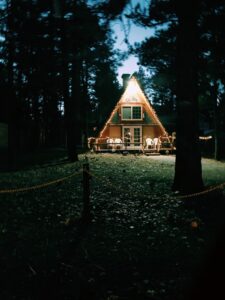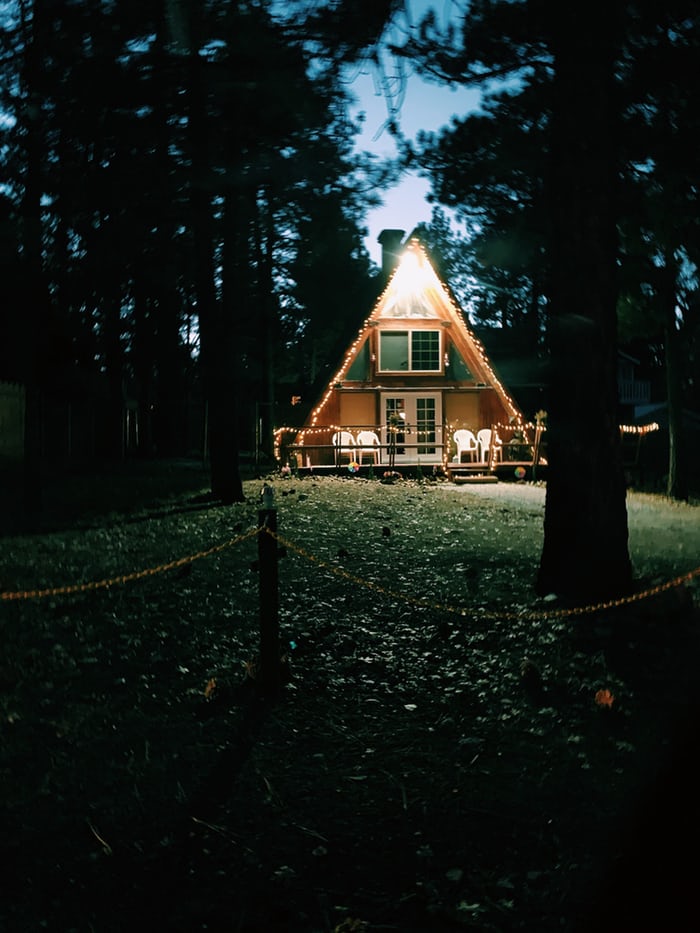How to save the family cottage
 Northern Michigan has been a beloved vacationing destination for many years. Families develop annual traditions, with each generation introducing the next to the beautiful countryside and artistic spirit found throughout the region. Frequently, a member or several members of the family decide to purchase a cottage, preserving the summer tradition for all the generations to come.
Northern Michigan has been a beloved vacationing destination for many years. Families develop annual traditions, with each generation introducing the next to the beautiful countryside and artistic spirit found throughout the region. Frequently, a member or several members of the family decide to purchase a cottage, preserving the summer tradition for all the generations to come.
The family cottage has invaluable sentimental value; however, oftentimes it appreciates in financial value over the years. Over the last 40 years, the greater Grand Traverse region has become a premier national vacation destination. The local real estate market has seen near constant appreciation, which has accelerated to sometime outrageous rates since the housing bubble collapsed in 2008. It is not uncommon for a modest cabin, purchased or built in the 1960s, to now be worth in high six, or even seven figures, if it has a significant amount of frontage on the right lake. Finally, the vacation rental industry has exploded into a major economic factor. The family cottage may not only be an appreciable asset, it can become a significant source of revenue, if the owners so desire.
The significant value associated with a family cottage can become problematic after its ownership has been distributed amongst a number of family members after the death of the first generation. Subsequent generations may have less attachment to the Cottage. In some cases, new owners may financial constraints on how much they can contribute to the maintenance of the property. Other owners may see the property as an investment, rather than a vacation destination.
For instance, lets imagine two brothers decide to purchase a piece of land on Torch Lake in 1950. The brothers each have four children, and for the first five years they own the property, they bring their families for the entire summer, first clearing the parcel, then building a beautiful log cabin, and finishing out the property with a guest bunk house and permanent dock. All eight of the children develop deep emotional ties to the property, and upon the death of both brothers, each of the 2nd generation now owns 12.5% of the cottage.
The 2nd generation have their own children, but due to circumstance and geography, only some of the 3rd generation visits the property regularly. As the 2nd generation begins to pass away, the ownership begins to get extremely complicated. Some of the 12.5% interests are now being split amongst the 3rd generation, so now, in addition to the 12.5% owners, there could be 6.25% owners and 2.5% owners. This 3rd generation also has a much different relationship with the property, perhaps seeing it as an asset to be sold or an income generation vehicle.
Without any type of organizational instrument, the situation can get very complicated. The most dramatic, and quite frankly, the most easily executed, way for one of the 3rd generation owners to cash out of the cottage is to file an action for partition. Under Michigan law, a part owner of a piece of property has an unfettered right to demand the property be “partitioned,” which means a forced sale (unless the property in question can be evenly divided physically, which generally only applies to vacant land).
If one of the 3rd generation owners, holding only a 2.5% interest in the property, finds herself in desperate need of some cash, but has no other assets to speak of, she may be tempted to turn her ownership interest into cash. She could file a partition action to force the sale of the cottage to get her share. The law creating the partition act even states that the costs of the partition are taken form the proceeds of the sale of the property. She has no skin in the game and can have the property put up for sale. In practice, the threat of a partition action is usually sufficient to bring the other owners together to purchase the departing member’s interest, but if the money just isn’t there, the property will be sold.
This is an extreme example but more common that you may think. There are other types of struggles that can arise, however, where you have a large number of owners. Who is responsible for paying the property taxes and insurance? How are those costs divided? Under what circumstances should large expenditures be undertaken? What happens if one of the owners can’t afford to pay their share of a major repair? All of these questions can lead to frustration, discord, and in some cases, litigation.
One of the modern solutions to the problems associated with multi-generational ownership of a family cottage is the use of a limited liability company (“LLC”). Although the notion of using a business entity to protect the family cottage may seem odd, the LLC provides a set of rules that can govern everyone’s interest in the property, while limiting any one owner’s ability to take dramatic action unilaterally.
The mechanics of the transaction are fairly simple. The LLC is created by filing documentation with the State of Michigan. Subsequently, each owner transfers their individual ownership interest in the cottage into the newly created company, providing the following benefits:
- Each person that transfers their ownership of the property into the LLC will receive a membership interest in the newly formed company—similar to stock in a corporation. Where each sibling previously owned real property, they now own a membership interest in the LLC, which is personal property. This creates numerous advantages, most importantly that a partition action is no longer available.
- If one of the owners is sued and has a large judgment levied against them, a creditor may only lien the debtor’s membership interest in the LCC; there is no longer the threat of a forced sale to satisfy the judgment.
- When creating the LLC, the members will draft an Operating Agreement, which is the equivalent of a corporation’s bylaws. These rules can govern a wide number of issues, providing predictability in the use and operation of the cottage:
- Creating rules regarding each member’s use of the cottage, deciding if a strict schedule is necessary, or simply laying out certain dates that no one owner can have exclusive use of the property;
- Setting forth a schedule of payments required by each member to cover fixed expenses, such as utilities, taxes, and insurance;
- Creating a mechanism through which major repairs are evaluated, voted upon, and paid, taking into account the various income levels the members may have;
- Governing who can receive a membership interest, which can be useful in the event of divorce or death; and
- Providing a route through which a member can be bought out or ejected, including the manner in which each interest is valued.
In sum, the Operating Agreement can cover as much or as little ground as the members desire. Having a fixed set of rules will limit the possible grounds for dispute, especially where the ownership of the property is very diverse and covering distant family.
If your family has a cottage that is partially owned by many families, or if you are planning on purchasing a cottage that you’d like to gift to your children, contact the experienced attorneys at Neumann Law Group for a free consultation today. We will evaluate your cottage and determine if a cottage LLC is appropriate for you.
Benjamin W. Bryant, J.D.
Neumann Law Group



